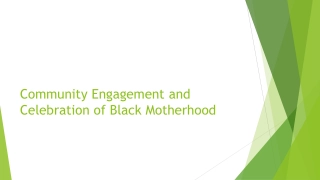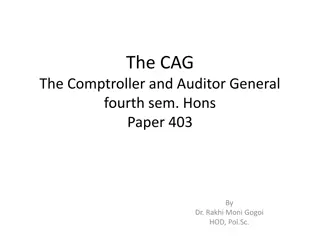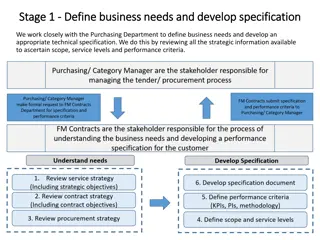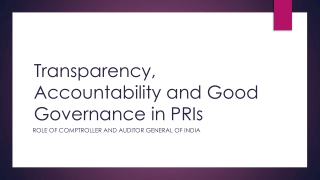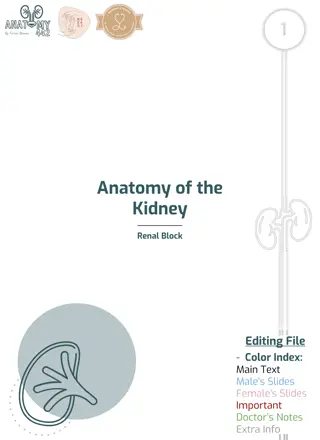Balancing Finances and Motherhood: A Comprehensive Guide
Explore the intricate relationship between money and motherhood, delving into how financial priorities shift after having a baby, the impact of motherhood on women's financial decisions, and the challenges and rewards of managing finances while raising a family. Gain insights on achieving financial stability, navigating work-life balance, and empowering women to be better stewards of their finances in the journey of motherhood.
Download Presentation
Please find below an Image/Link to download the presentation.
The content on the website is provided AS IS for your information and personal use only. It may not be sold, licensed, or shared on other websites without obtaining consent from the author. Download presentation by click this link. If you encounter any issues during the download, it is possible that the publisher has removed the file from their server.
Presentation Transcript
Money & Motherhood: Balancing Finances with raising a family Speaker: Temitope Oyekanmi
Table of Contents Introduction Money and Motherhood How motherhood can change the approach to finances Balancing Finances with raising a family-The 7-step approach Final Thoughts
Introduction A survey by Citi's Women & Co. found that after having a baby money becomes a woman's second highest priority, after parenting. When child-bearing sets in, women tend to prioritize parenting over earning money, but their roles in financial decision-making becomes bigger. A good number of women today juggle work and motherhood at the same time. While there are many other things that can motivate moms to work (be it at or away from home) such as self-worth, seizing opportunities and being productive, money is a big factor in this tough decision, as mothers would naturally prioritize her kids. While we do not need any research to prove that becoming a mother changes a woman's life, there is a need to understand why motherhood changes a woman's financial status, for better or for worse, maybe more than what a marriage does. Knowing how money and motherhood status are connected and learning the skills to make each a powerful tool to better the other will surely make more women happier moms and better finance stewards.
Quotes A woman s best protection is a little money of her own, Clare Booth Luce, American author and US ambassador When money flows into the hands of women, who have the authority to use it, everything changes for women, their families, and their communities, Melinda Gates, philanthropist Give a woman a dollar, and she can put it to good use. Teach her about how money really works, and she can change the world, Linda Davis Taylor, CEO and Chairman of Clifford Swan Investment Counselors
Money & Motherhood Money and Motherhood are related, and the two words are linked together. Mothers play a crucial role in shaping the society by nurturing and raising the next generation. They often juggle multiple responsibilities, including childcare, household management, and sometimes, full-time careers. The financial implications of motherhood means that mothers must adjust their finances to fit the needs of their growing family whether they are in the labor force or a stay-at-home mom as a working mom combines a career with the responsibility of raising a family.
Money & Motherhood The relationship between money and motherhood is multifaceted and can vary significantly depending on cultural, socioeconomic, and personal factors. Here are several aspects to consider: 1.Financial Stability: Money is crucial for ensuring the financial stability of a family, including mothers and their children. Financial resources are needed to provide for basic needs such as food, shelter, clothing, healthcare, education, and other necessities. Lack of financial resources can create stress and challenges for mothers in fulfilling these responsibilities. 2.Work-Life Balance: Balancing motherhood with a career or other income-generating activities often involves financial considerations. Many mothers face decisions regarding employment, childcare costs, and the trade-offs between working outside the home and staying at home to care for children. Economic factors may influence choices around employment, such as the availability and affordability of childcare, flexible work options, and the potential earnings from employment. 3.Economic Empowerment: Financial independence and economic empowerment are important for mothers. Having control over financial resources can enhance a mother's ability to make choices that benefit herself and her children, such as investing in education, healthcare, and opportunities for personal and professional growth.
Money & Motherhood 4. Societal Expectations: Societal norms and expectations regarding motherhood and money can influence individual experiences. In some cultures, or societies, there may be pressure on mothers to prioritize traditional caregiving roles over pursuing careers or financial independence. Economic disparities can exacerbate inequalities in access to resources and opportunities for mothers and their families. 5.Financial Planning: Effective financial planning is essential for mothers to secure their own financial futures and provide for their children's needs. This includes budgeting, saving for emergencies, retirement planning, and investing in assets that generate long-term wealth. Financial literacy and access to resources for financial education and support are important for empowering mothers to make informed decisions about managing their finances. 6.Impact of Motherhood on Income: Motherhood can have implications for women's income and earning potential. Factors such as career interruptions, part-time employment, and the motherhood penalty (i.e., the negative impact of motherhood on women's earnings and career advancement) can contribute to disparities in income between mothers and non-mothers. Addressing these disparities requires policy interventions to promote gender equity in the workplace and support systems that enable mothers to balance work and family responsibilities.
How motherhood can change the approach to finances Motherhood can significantly impact one s approach to finances in various ways: 1.Setting the right priorities: After becoming a mother, priorities often shift towards providing for the well-being of the child. 2.Budgeting: Mothers may become more diligent in budgeting and managing household finances to ensure that there are adequate resources to support the family's needs. 3.Long-term Planning: Motherhood often prompts individuals to think more about the future and plan for the long term. 4.Creating Emergency Funds: Motherhood can highlight the importance of having financial safety nets in place for unexpected expenses or emergencies. 5.Financial Education: Many mothers recognize the importance of financial literacy and seek to improve their knowledge and skills in managing money effectively.
Balancing Finances with raising a family-The 7-step approach 1.Create a Budget: Develop a comprehensive budget that outlines your household income and expenses. 2.Prioritize Financial Goals: Identify your short-term and long-term financial goals, such as building an emergency fund, saving for your children's education, paying off debt, and planning for retirement. Prioritize these goals based on their importance and allocate resources accordingly. 3.Live Within Your Means: Avoid overspending and live within your means by sticking to your budget and avoiding unnecessary expenses. 4.Communicate Openly: Foster open communication with your partner and children about financial matters 5.Be in control of your debts: Avoid being in a dire financial situation where you borrowed more than you can comfortably afford to repay.
Balancing Finances with raising a family-The 7-step approach 6. Invest for the Future: Invest wisely for the future to grow your wealth and secure your family's financial future. 7. Plan for the Unexpected: Build and maintain an emergency fund to cover unexpected expenses or financial setbacks. By implementing these strategies and maintaining a proactive approach to managing your finances, you can effectively balance financial responsibilities while raising a family and work towards achieving your financial goals.
Final thoughts Becoming a mother is the most incredible experience and it changes your mindset about financial wellbeing and education a conversation we should be having more often. It s about security, it s about making choices that reflect our own beliefs and values, and it s about recognizing the ability mothers have to make our money work for us and our families. Becoming a mother is a tough job, but also the most gratifying experience. The more equipped and structured you are in your financial life, the more convinced you ll be in raising your mini you!


